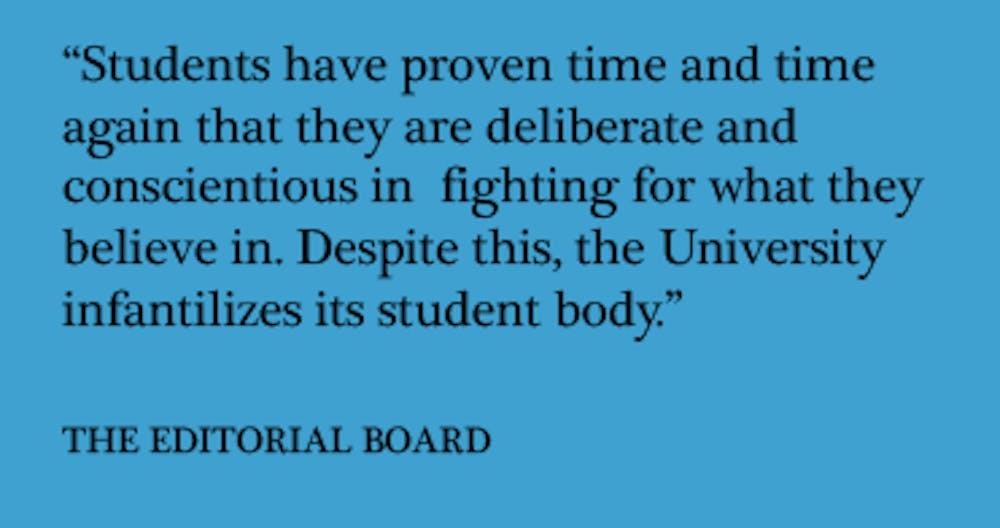College campuses have long been hubs for student activism, and the Homewood campus is no exception. From protests against South African apartheid in the 1980s to demonstrations for contract workers’ rights in more recent years, Hopkins activists have been fighting for causes they believe in for decades.
Last spring, the University released the “Student Guidelines for Free Expression on the Homewood Campus.” These suggested regulations asked that groups register protests with the school and refrain from disrupting daily activities.
At that time, student groups reacted strongly against the spirit and provisions of the document.Students felt that registering protests was antithetical to the very nature of protest — which is to disrupt the status quo.
Hopkins has since revised and re-released the document this past week, now titled “Guidelines for Students in Support of Free Expression Through Protests and Demonstrations.”
Even though the administration has weakened the original language of the document, the Editorial Board still disagrees with its very premise. As the Ediorial Board noted last year when the first version came out, any “guidelines” on free expression are an “oxymoron.”
We understand that certain stipulations of the document are meant to ensure the health, safety and rights of the members of our community. However, these provisions are already included in the Student Code of Conduct and do not need to be restated.
We understand that these “guidelines” are voluntary, but by framing protest in the context of these “guidelines,” the University sets a baseline understanding that protests are meant to be planned in cooperation with the school. Such a situation inevitably creates a conflict of interest for the University which is frequently the target of many student protests.
Additionally, asking students to register their protests shows that Hopkins does not trust students to think critically about how and why they protest. Whether its calling for divestment from fossil fuels or the preservation of the Humanities Center, students have proven time and time again that they are deliberate and conscientious in fighting for what they believe in. Despite this, the University infantilizes its student body.
Substantive efforts for change at Hopkins have often been a result of student demonstrations. The University’s recent efforts to address its lack of diversity were, in part, spurred by a deliberately disruptive protest by the Black Student Union in the fall of 2015.
At this demonstration, over 100 students gathered on Keyser Quad to intentionally interrupt President Daniels’ annual “Thank You” video filmshoot. If those students were to follow today’s guidelines, they could face pushback from the school for not reserving the space beforehand.
Protests are intrinsically disruptive. They disrupt our plans and our preconceived notions, all in the attempts to improve our community. We may not agree with every protest, but students protests should remain student-run.





